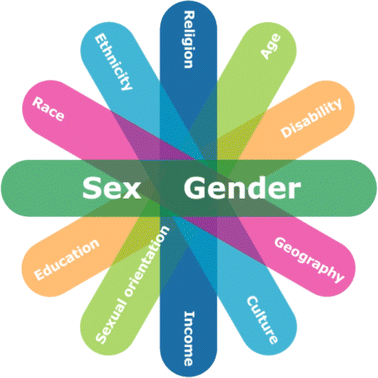
About Sleep Equity Project
Vision
A future where every person can thrive through the benefits of restorative, high-quality sleep, recognized as a fundamental right and equally accessible to all individuals, families, and communities—free from social, economic, or cultural barriers.
Mission
Our mission is to eliminate the impact of insufficient sleep and sleep disorders on chronic health conditions, focusing on addressing health disparities and promoting equitable outcomes. We achieve this by combining education, advocacy, community-driven programs, and research initiatives to address the root causes of insufficient sleep and reduce its prevalence and impact in underserved and under-resourced communities.
History
Sleep Equity Project was launched in January 2023 to fill the gaps seen in advocacy, awareness, education, work on community interventions, and supporting translational research. Despite a robust and wonderful patient advocacy landscape that serves many specific sleep disorders, no one organization is solely focused on serving those who are underserved at a policy, advocacy, and resource level. There is also a significant number of sleep physicians and researchers who have worked for decades to establish and enrich the field of sleep health disparities. Their work has discovered many novel interventions to address the multi-level causes of sleep health disparities. They continue to innovate and create.
Many wonderful health equity organizations are working hard on the various components that contribute to inequitable outcomes for underserved people. Sleep Equity Project is an effort to be part of those important conversations among fellow patients, caregivers, practitioners, researchers, legislators, federal agencies, insurance companies, and corporations. Those conversations and continued innovation are necessary to address the inequities and disparities
faced by those who are underserved and experiencing insufficient sleep or sleep disorders.
“Notably, insufficient sleep has been linked to the development and management of a number of chronic diseases and conditions, including type 2 diabetes, cardiovascular disease, obesity, and depression.." (9)
Centers for Disease Control
"Infection-fighting antibodies and cells are reduced during periods when you don't get enough sleep. So, your body needs sleep to fight infectious diseases. Long-term lack of sleep also increases your risk of obesity, diabetes, and heart and blood vessel (cardiovascular) disease." (10)
Mayo Clinic
"Sleep deficiency is linked to many chronic health problems, including heart disease, kidney disease, high blood pressure, diabetes, stroke, obesity, and depression." (11)
National Institute of Health, National Heart Blood and Lung Institute
Sleep and Disease
Central Concepts Which Impact Sleep Equity
There are three key aspects which contribute to sleep inequities:
Social Determinants of Health Intersectionality Identified Health Disparity Population


Social Determinants of Health
Quality of Sleep and Social Determinants of Health
There are various aspects of life which have an impact on health outcomes for individuals and groups of people. The concept of Social Determinants of Health (SDoH) according to the World Health Organization are “the conditions in which people are born, grow, live, work and age” and “the fundamental drivers of these conditions.”
"Insufficient sleep was associated with being female, White or Black/African-American, unemployed, without health insurance, and not married; decreased age, income, education, physical activity; worse diet and overall health; and increased household size, alcohol, and smoking."
Grandner, Jackson, Bilggy, Gallagher, Murry-Bachmann, Williams, Patel, Jean-Louis 2015 Frontiers in Neurology (12)
Image Credit reference citation (13)


Intersectionality
Intersectionality and How It Relates to Sleep
Coined by Kimberle Crenshaw, Intersectionality is an analytical framework for understanding how aspects of a person's social and political identities combine to create different modes of discrimination and privilege.
This framework helps provide the basis for the numerous contributing factors which drive sleep disparities and impact the Social Determinants of Health.
The socioeconomic status, the stress of racism, acculturation (a new language or culture) are factors which research has demonstrated has an impact on the quality and quality of a persons sleep.
Populations With Health Disparities
The National Institute of Minority Health Issues and Health Disparities defined specific populations who are at risk based on the available data and research of existing outcomes.
Those populations are:
-
Racial and ethnic minority groups
-
People with lower socioeconomic status (SES).
-
Underserved rural communities.
-
Sexual and gender minority (SGM) groups.
Racial minorities and those with lower socioeconomic status have shown significant differences in the prevalence of sleep related problems at baseline in the incidence of type 2 diabetes, high blood pressure and cardiovascular disease. (14)


Our Approach
Advocacy
Awareness
Education
Community Intervention
Supporting Research
